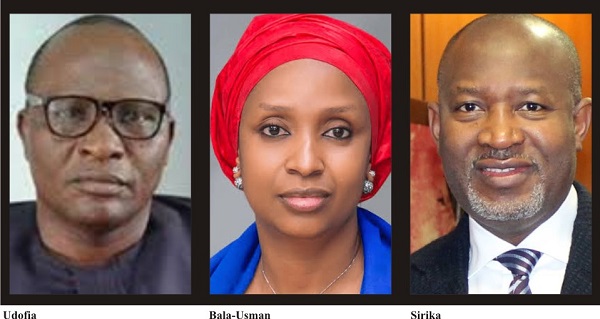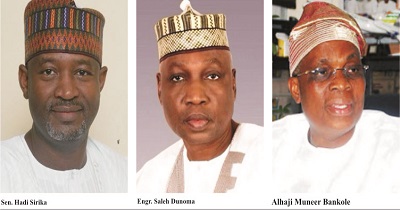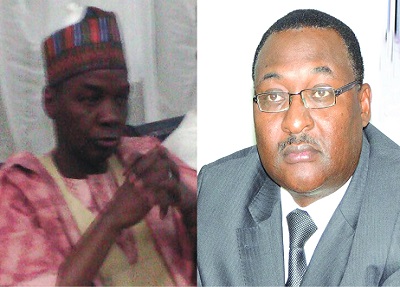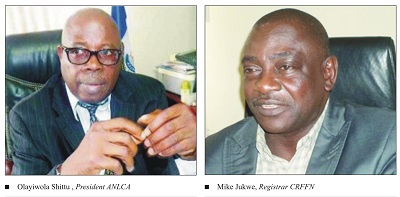Why Judges Need Convocation

The 6th Strategic Admiralty Law Seminar for Judges organised by the Nigerian Maritime Administration and Safety Agency (NIMASA) for members of the bench is in not without a statement. It definitely was meant to remind or educate the bench on some salient legal issues that have to do with the maritime sector.The importance of such seminar was not to teach a new thing that the judges have never heard or known but it was simply an avenue to rub minds on issues that could be militating against the well being or the moving forward of the maritime sector.
One thing was germane to this kind of gathering; it is an opportunity to make bare the issues bothering the organisers and the general stakeholders in the sector which hitherto had not been addressed.
The event was an interaction per se as it offered opportunity to renew knowledge, as well as creating an enabling environment for interaction and atmosphere to divulge some salient information on matters that have been hampering the progress of the sector in one way or the other.
The event which is in its sixth year has helped to sensitise judges on contemporary maritime law issues both within and outside the Nigerian jurisdiction as shipping by its nature is a multi-jurisdictional enterprise.
The initiation of the Admiralty law seminar for judges stemmed from the fact that there are complex nature of maritime issues which required speedy resolutions as time is of the essence in maritime ventures.
It is believed that if there is a continuous cordial relationship between the judges and the agencies of government, it will help to provide a platform where the two will work hand in hand to accelerate the process of execution of judgement not necessarily to favour them but to avoid unnecessary delay in prosecution of a case so as not to encourage criminality.
In the case of NIMASA and the judges of the federal high Court, it is very important that such interrelationship takes place so that the rate of criminality on waters that was almost crippling international trade is as fast as possible, nipped in the bud before it translates into something phenomenal.
The Chief Judge of the Federal High Court, Justice Ibrahim Auta saw the need for the gathering as he pegged the necessity on the ability of the bench to further deliberate on the subjects even though they were already familiar with and to be able to take the maritime sector to another level that will make it competitive with international standard.
In his welcome address, Chief Judge noted that the seminar for Judges was meant for judges and other practitioners to rub minds freely and share experiences in the business of maritime.
Justice Auta said that “the seminar will further keep the judiciary abreast of important issues in the maritime sector.”
Many issues were placed on the table for discussion which included “Principles and Practice of Subrogation in Marine Insurance Contracts by Dr. Omogbai Omo-Eboh, Partner, CONDOLEX. In the session, the need for the insurer to be indemnified in respect of payouts to the insured was discussed.
It focused on the principle governing marine insurance contracts vis-a-vis the subrogation rights of an insurer. It also reviewed the basic principles of indemnity contracts, grounds upon which an insurer can pursue a subrogation claim, causes of action leading to subrogation.
Dr. Adewale Olawoyin, SAN, Partner, Olawoyin and Olawoyin delivered a lecture on the Contemporary Developments in Nigerian Maritime Law.
In this session, relevant issues to maritime law and practice I Nigeria were perused including the implications of the Third Amendment of the 1999 Constitution on the enforcement or otherwise of certain Maritime Liens, the legal position of the right suit under bills of lading following the repeat of section 375 of the Merchant Shipping Act and the property of the legal bases of arresting maritime property other than the ship.
The Fundamental Concepts of Admiralty Law session was delivered by Mr. Emeka Akabogu, Principal Partner, Akabogu and Associates. In his lecture, he highlights the first principles of ordinary law to enable delegates understand why the admiralty area of law is so unique.
The concepts which have special interpretation under the common law and status was reviewed and introduced for the benefit of those who are new to the area of law.
The concept of the ship’s personality, its role as a security for claim and the principles from the Indian Grace all fell for cons9ideration under the law.
Mr. Osuala Nwagbara, partner, Maritime and Commercial Law Partner spoke on Legal Issues Arising from Port Operations in Nigeria. In his delivery, Barr. Osuala said that lack of seamless efficiency in the port which serves as a gateway to trade between countries and particularly in Nigeria where diverse interests are represented, there was always case, issues arising that must be taken care of.
He therefore said the paper was meant to review the various parties and relationships involved in or arising from port operations and the legal issues arising from their relationships inter se.
He also reviewed the structure of port operations over the years and how it has impacted on the rights and liabilities.
The paper on law and Application of Maritime Conventions in Nigeria was given by Mrs. Oritsetosan Edodo-Emore, Partner, Oritsemotosan, Edodo, Thorpe and Associates. She said with shipping arguably the most international trade ort economic sector there was, proper perspective on the subject was always very important. Most of the laws governing merchant shipping derived from, or are international maritime conventions.
The session was focused on the concept of international maritime treaties and its enforceability within a sovereign state such as Nigeria. It clearly spelt the importance of maritime conventions to practice and operations within the maritime environment.
It reviewed the domestication and application of maritime treaties in recent time by Nigeria, and highlights any legal or constitutional question that might be important.
Essentially, the whole duration of the seminar however was precious because so much was able to be done albeit as a reminder or refresher issue to update the legal luminaries at the gathering on the issues that have to do with legal aspect of the maritime sector.
It is obvious that the exalted members of the bench who were at the seminar would definitely have something to take home which will inadvertently help them in their statutory duty of adjudication in the nearest future or at any other time necessary.







